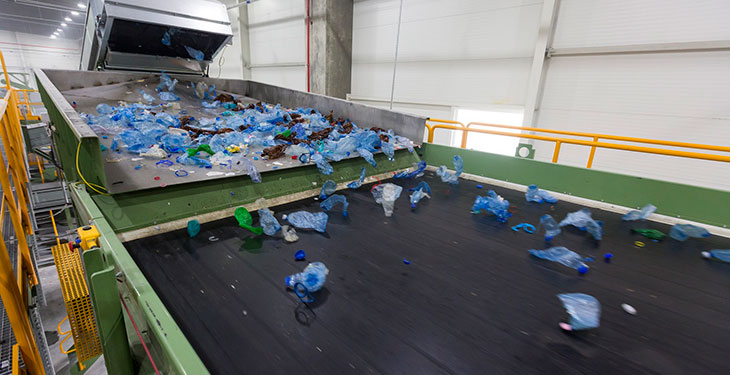The Romanian company GreenTech, part of the Green Group, is the first company in Europe to obtain on the voluntary market carbon certificates (VER) resulting from the waste recycling activity, after receiving the Gold Sandard validation for an issue of 453,000 such certificates, the equivalent of the tons of carbon emissions saved by recycling PET waste over a period of 10 years.
The validation of the project “Reducing CO2 emissions through PET recycling” lasted 4 years, during which time the emissions, energy consumption and fuel from the PET waste recycling process carried out by GreenTech were rigorously measured.
“GreenTech collects and recycles PET packaging waste, resulting in new processed plastic products, such as PET tape, rPET granules for food use and polyester synthetic fiber. This project certifies that, compared to the manufacture of the same products from virgin resources, the recycling of PET waste ensures a 48% reduction in carbon emissions, ie 45,000 tons of CO2 are saved annually, which can be traded in the form of carbon certificates to companies or individuals who want to compensate their own consumption,” said Alina Genes, CEO of GreenTech.
A carbon certificate is a tradable certificate, representing one ton of carbon dioxide saved by a specific activity, which has been measured and validated by an independent organization. Through the voluntary transaction mechanism, companies seeking to reduce their own carbon footprint have the opportunity to benefit from the amount of CO2 saved by other companies, thus supporting and encouraging projects that reduce the global carbon footprint. Carbon certificates can be purchased by companies or individuals either through a direct transaction with GreenTech or through specialized sites, such as the Gold Standard platform.
“Although voluntary at the moment, many companies have aligned themselves with the direction of sustainable development set by the United Nations and the European Commission, making a public commitment to reduce or neutralize the carbon footprint. Along with specific measures to reduce internal emissions, the purchase of carbon credits on the voluntary market, to compensate for certain activities that could not be avoided, is a solution to achieve the zero emissions target,” added Alina Genes.
The voluntary market is recognized as part of the global CO2 emissions market, but operates outside the regulated market for carbon certificates, resulting from the Kyoto Protocol. There are a limited number of international organizations that certify and issue voluntary carbon credits, Gold Standard being among the best known and with an impeccable reputation. The Gold Standard certification scheme – supported by over 60 non-profit organizations as well as the United Nations – is a guarantee that projects that receive carbon certificates make a real, verifiable and measurable contribution to sustainable development and environmental protection.
With the funds obtained from the sale of certificates, GreenTech aims to increase recycling capacity, as well as diversify the types of recycled materials. At present, GreenTech has a recycling capacity of 150,000 tons of PET waste/ year, being one of the most important European recyclers for PET.
